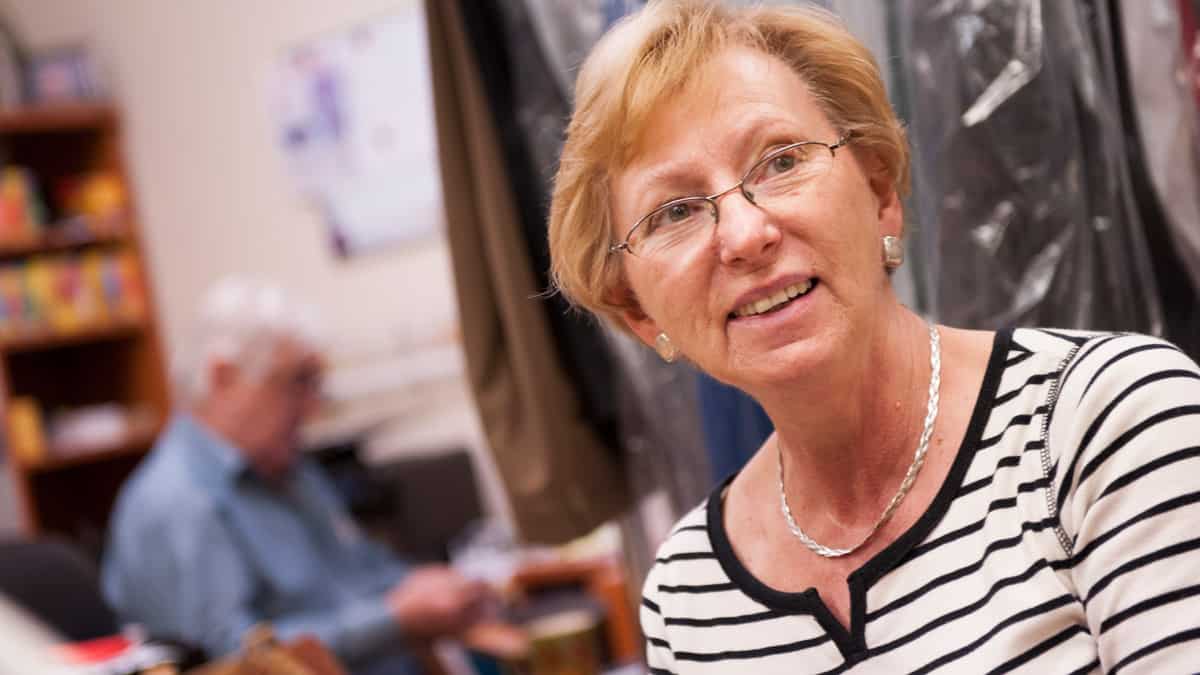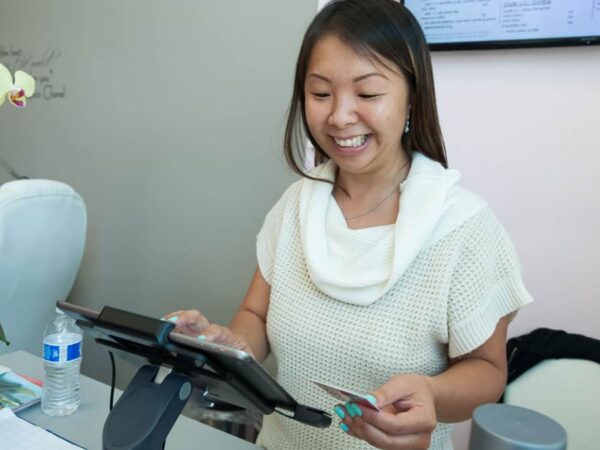Women-Owned Business Certification | Accion Opportunity Fund
Learn more about Women-Owned Business Certification and how to obtain federal government certification and private sector certification.

More than 13 million businesses in the United States are owned by women, according to the latest State of Women-Owned Businesses Report, commissioned by American Express. And the figure is growing by more than a half-million every year. These women-owned businesses generate more than $1.9 trillion in revenues and employ around 9.4 million people.
If you are among them, you may want to consider becoming officially certified as a Woman-Owned Small Business (WOSB) or Woman Business Enterprise (WBE).
Benefits of Women-Owned Business Certification
Many corporations and government agencies have so-called “supplier diversity goals”, which means they try to have a well-rounded list of companies they do business with, spreading contracts around so that minority and women-owned businesses can also get a piece of the pie.
At the federal level, the government has a goal of awarding 5% of the value of all of its contracts to women-owned companies, and similar goals have spread to state and local governments as well as into the private sector. You have to be certified, however, to qualify.
Who Can Get Certified?
Requirements for Certification
To qualify as a women-owned small business or WOSB, your business must meet the following requirements:
- Your company must qualify as a small business based on SBA small business size standards. The standards are usually stated in terms of employee size and/or annual revenue, and vary depending on your industry code.
- Your company must be 51 percent owned by women who are U.S. citizens.
- Women must manage the operations on a daily basis.
- Women must make long-term decisions for the company.
- A woman who works full-time for the company during normal work hours must hold the highest officer position in the company.
- There are no rules governing time in business.
To qualify as an economically disadvantaged women-owned small business or EDWOSB, your business must meet the WOSB requirements, and the owner of the company must demonstrate economic disadvantage in the following ways:
- Personal net worth is less than $750,000 with some exclusions
- Adjusted gross income averaged over three years of $350,000 or less with some exclusions
- Fair market value of all assets (no exclusions) of $6 million or less
How to Obtain a Women-Owned Business Certification?
There isn’t one, universally-accepted certification. The federal government has its programs, and corporate America has gravitated toward others. Here is what you need to know to get certified.
Federal Government Certification
The Small Business Administration certifies Women-Owned Small Businesses (WOSB) and Economically Disadvantaged Women-Owned Small Businesses (EDWOSB) so they can be recognized as such when they bid for government contracts. If you qualify, certification can open the door to programs and contracts that have been set aside specifically to help businesses such as yours.
The federal government defines a woman-owned business as one that is at least 51 percent owned by one or more women, or for publicly traded companies, where at least 51 percent of the stock is owned by one or more women. The female majority owner must be a U.S. citizen. The daily management and business operations must also be controlled by one or more women. And the business must be “small” in accordance with SBA’s size standards for its industry. There are additional requirements to be recognized as economically disadvantaged.
The form to apply for WOSB certification is available on the Small Business Administration’s website.
You can also be certified as a WOSB by one of four SBA-approved organizations: the El Paso Hispanic Chamber of Commerce, the National Women Business Owners Corporation, the US Women’s Chamber of Commerce, and the Women’s Business Enterprise National Council.
WOSB certification isn’t all you have to do to be eligible for federal contracts and set-asides; you must also register with the System for Award Management.
Private Sector Women-Owned Business Certification
There are two main players when it comes to certification for private sector corporations that are looking to connect with women-owned businesses, the National Women Business Owners Corporation (NWBOC) and the Women’s Business Enterprise National Council (WBENC).
Both organizations offer a Women’s Business Enterprise (WBE) certification in addition to the WOSB certification described above. Generally speaking, the WBE designation will be accepted by most private companies and some municipalities, while WOSB certification is required to participate in federal programs.
Some government agencies will accept WBE certification, but if you plan to solicit work from your state, city, or local agencies, check with them directly about what their requirements are.
The application fee for WBE certification from the NWBOC is $400. If you qualify, you will need to be recertified every year, which will cost between $200 and $300, depending on the size of your company. The organization recommends you be in business for at least six months before applying, although it suggests it’s never too early for startups to familiarize themselves with the program and start collecting the required materials.
Application fees for WBE certification by the WBENC are set by its 14 Regional Partner Organizations. To find and contact the regional organization near you, check the WBENC territory list on its website. Certification is good for one year, and you must be recertified annually. The WBENC does not have a minimum requirement for how long you must be in business to apply.
Site visits to your business will be done by both the NWBOC and WBENC before you are approved.
How do you decide which organization to use? Check out each of the websites to see if one offers any particular benefits to your type of company, or if one has more corporate members that you’d like to approach for business. Failing that, the application fee could be your guide. Certainly, each association is reputable, and both are listed as resources on the website for the National Association of Women Business Owners. Most importantly, if you are targeting any potential customers, make sure to ask them if there is any particular certification they require.
The Bottom Line on Certification
Certification can be a time-consuming process when it comes to gathering all of the documentation and filling out the forms, so you want to make sure to apply for the type that can benefit you the most.
Remember, as well, that simply getting certified as a woman-owned business isn’t a guarantee you’ll get new business! Yes, it can open doors for you, but you still have to do the work, promote your company, and follow through to close the sale.
Learn more about Accion Opportunity Fund and how we empower female business owners, or explore our Resources for Women-Owned Businesses for more tips.









